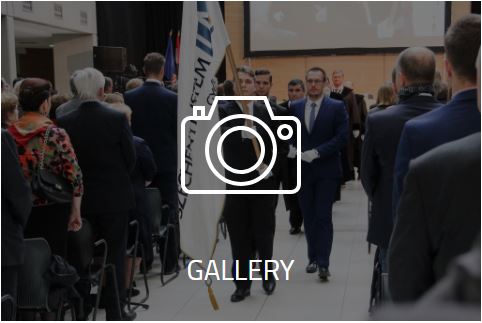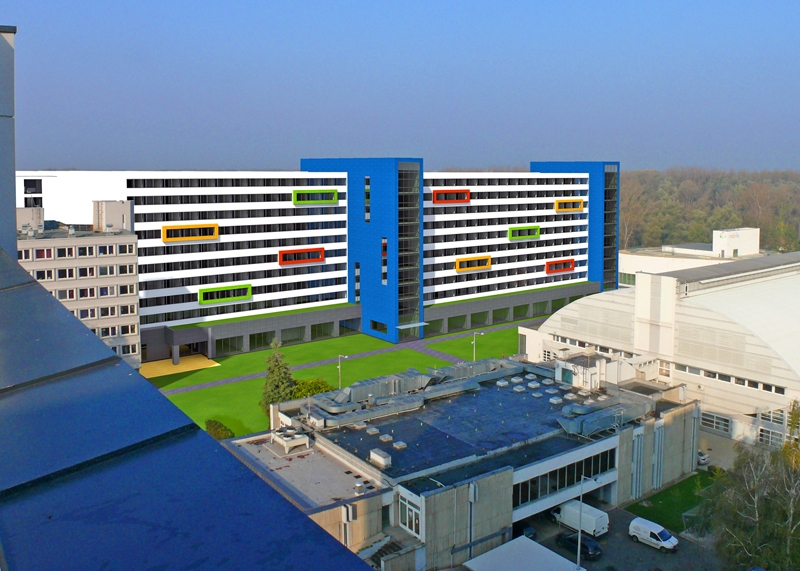Indian Cultural Festival at Széchenyi István University
On Saturday, 16th June, the new Aula of Széchenyi István University was the venue for a celebration of the 3rd Ganga-Danube Intercultural Festival and the 4th International Yoga Day.
Vice-rector of the University, Dr Lukács hosted the Festival and introduced guest speakers and performers. Organised in collaboration with the Indian Embassy of Hungary, to whom the University is indebted for their generous support and sponsorship, the rich and varied programme of cultural events was well attended and greatly appreciated by Festival participants.

Dr Eszter Lukács, Vice-rector
An electrifying opening performance featured a Kuchipudi dance recital, beautifully executed by Gabriella Tóth Garima and her Tarangam Dance Company. Deeply engaged for more than twenty years in Indian Classical dance both in Hungary and in India, where she has spent long periods on study tours, Ms Garima is a highly acknowledged choreographer and the only Hungarian soloist of the South-Indian Kuchipudi Dance. One of the eight major Indian classical dances, the contemporary interpretation of Kuchipudi dates back to the 13th century. The highlights of the dance repertoire were three exquisite solo Kuchipudi pieces performed by Ms Garima. The exacting footwork and expressive gestures of her hand, eye and face movements were most enthusiastically applauded by the audience. Visitors also obviously appreciated the outstanding endeavours of the sari-clad members of her ensemble in the group performances.

Gabriella Garima

The Tarangam Dance Company
Following the Kuchipudi recital, Dr Asmita Wele, Professor of the Department of Pharmacology and Pharmacotherapy and Chairperson of the Ayurveda chair at the University of Debrecen, gave a fascinating lecture on a variety of aspects of Ayurvedic medicine and Indian culture. Derived from two Sanskrit words, ayus (life) and vid (knowledge), Ayurveda is practised as the “science of life”. In her talk, Dr Wele emphasized how Ayurveda practitioners are as much concerned with enhancing the quality of life and the prevention of ill-health as they are with the treatment of disease. She emphasized how contemporary Ayurveda promotes the attainment of vitality by building a healthy metabolic system and by maintaining good digestion and excretion. The professor initially outlined the central concepts of Ayurvedic medicine: the theory that health exists when there is a balance between three fundamental bodily bio-elements or doshas called Vata, Pitta and Kapha. Doshas are the forces that create the physical body, determining conditions of growth and aging, health and disease. Typically, one of the three doshas predominates and determines one's constitution or mind-body type. By understanding patients’ individual habits, emotional responses, and body type, practitioners can adapt their approach and treatments accordingly.

Dr Asmita Wele PhD
The Indian Embassy in Hungary generously sponsors programmes to raise awareness of leading a healthy and conscious lifestyle by following the ancient, traditional Indian art and health-care system of yoga. So it was especially fitting on 16th June, the 4th International Day of Yoga, a UN day of Observance, that the final event of the programme should be a practical demonstration of a range of yoga activities and techniques according to the system “Yoga in Daily Life”, represented and facilitated by Dr Tamás Cseuz. The audience was introduced to the multiple health benefits of practising yoga, and subsequently guided through a comprehensive set of yoga exercises. Dr Cseuz convincingly demonstrated how yoga can bring relaxation, reduce stress and increase general health and stamina, improving the adverse conditions brought about by modern sedentary lifestyles.

Dr Tamás Cseuz
Mehndi is a form of body art from Ancient India in which decorative designs are created on a person's body, using a paste created from the powdered dry leaves of the henna plant. Throughout the whole Festival programme, mehndi artists were in attendance, offering to decorate participants’ hands and arms with traditional patterns. Many visitors gladly took advantage of this service which, like all the other elements of the programme was completely free of charge.





